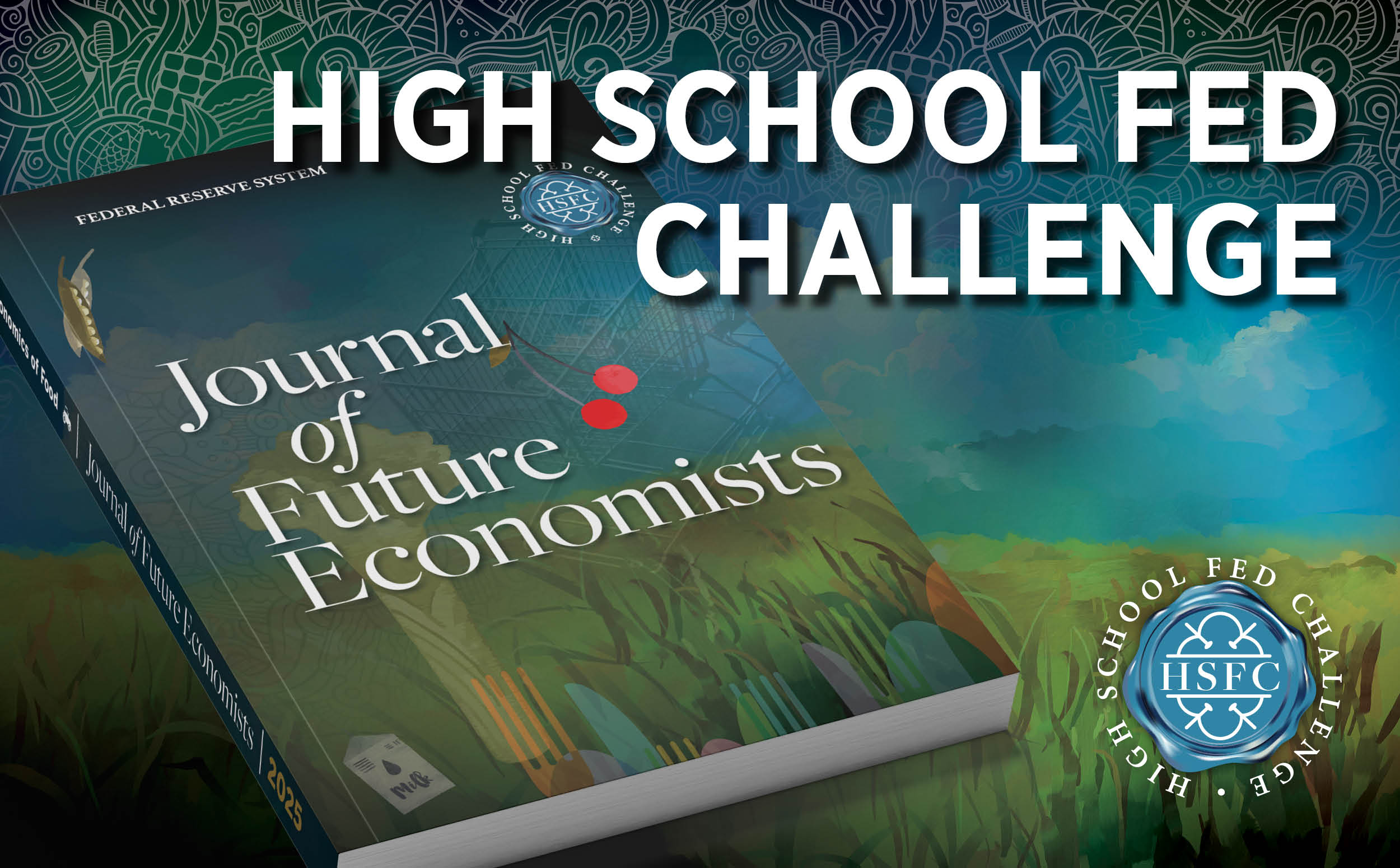This year’s theme – Economics of Music – offers the opportunity to explore music through the lens of economics. Music plays a part in our personal experiences and collective communities. It is art and an industry shaped by culture, market trends, innovation, and economics. The Economics of Music theme encourages critical thinking about how economic principles can apply to what we listen to, how it’s produced, and who benefits. Whether examining how streaming has transformed business models, analyzing consumer choices and decision making through behavioral economics, or considering how artists earn income in a changing landscape, this year’s theme provides an opportunity to apply economic thinking to real-world questions about music as a broad and dynamic subject.
We have provided an online collection of different resources available to help students begin to explore this year’s theme. We invite High School Fed Challenge teams to submit academically researched podcast scripts on any topic that relates explicitly to this theme.
Federal Reserve Economic Data (FRED) is an online database maintained by the Federal Reserve Bank of St. Louis. FRED consists of hundreds of thousands of economic data time series from national, international, public, and private sources. FRED combines data with a mix of tools that help users understand, interact with, display, and spread the data. This webpage displays search results for data related to music. The Bureau of Economic Analysis (BEA) produces economics account statistics to follow and understand the performance of the nation's economy. BEA collects source data, conducts research and analysis, develops and implements estimation methodologies, and disseminates statistics to the public. This webpage shows results for various research on music, arts, and culture. The Bureau of Labor Statistics (BLS) measures labor market activity, working conditions, and price changes in the economy. This webpage shows various research and data such as the occupational outlook related to music. JSTOR is a not-for-profit organization that provides a digital library of academic content, including journals, books, and primary sources. This webpage contains results with various resources on the economics of music. The National Bureau of Economic Research (NBER) is a private, nonprofit organization that conducts and disseminates nonpartisan economic research. It is nonpartisan and refrains from making policy recommendations, focusing instead on providing background studies and data that underlie decision-making in both the public and private sectors. This webpage contains various research on music. Pew Research Center is a nonpartisan fact tank that informs the public about the issues, attitudes and trends shaping the world. This webpage contains various resources on music. The U.S. Census Bureau provides current facts and figures about America’s people and the economy. This webpage contains various articles, reports, and data on music. The World Bank provides research and publications on major areas of development and global issues. Their Open Knowledge Repository includes reports and articles on music and communities.This podcast episode provides an example of an economics podcast script as well as information about the economics of working remotely.












